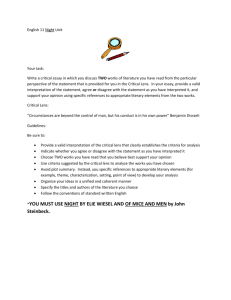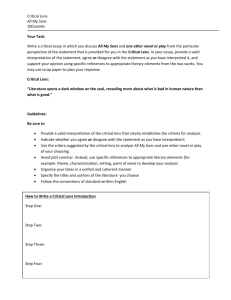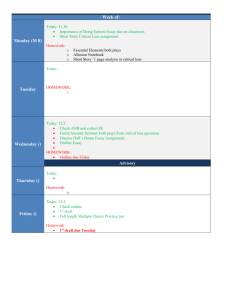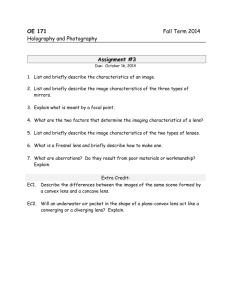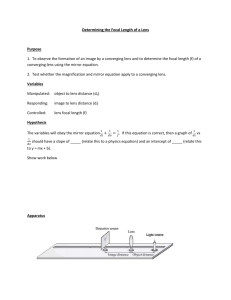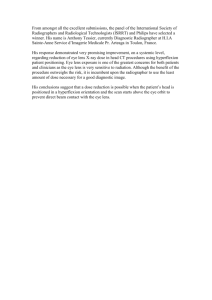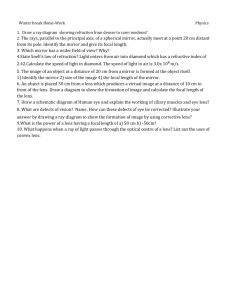To find the focal length of a Converging Lens
advertisement
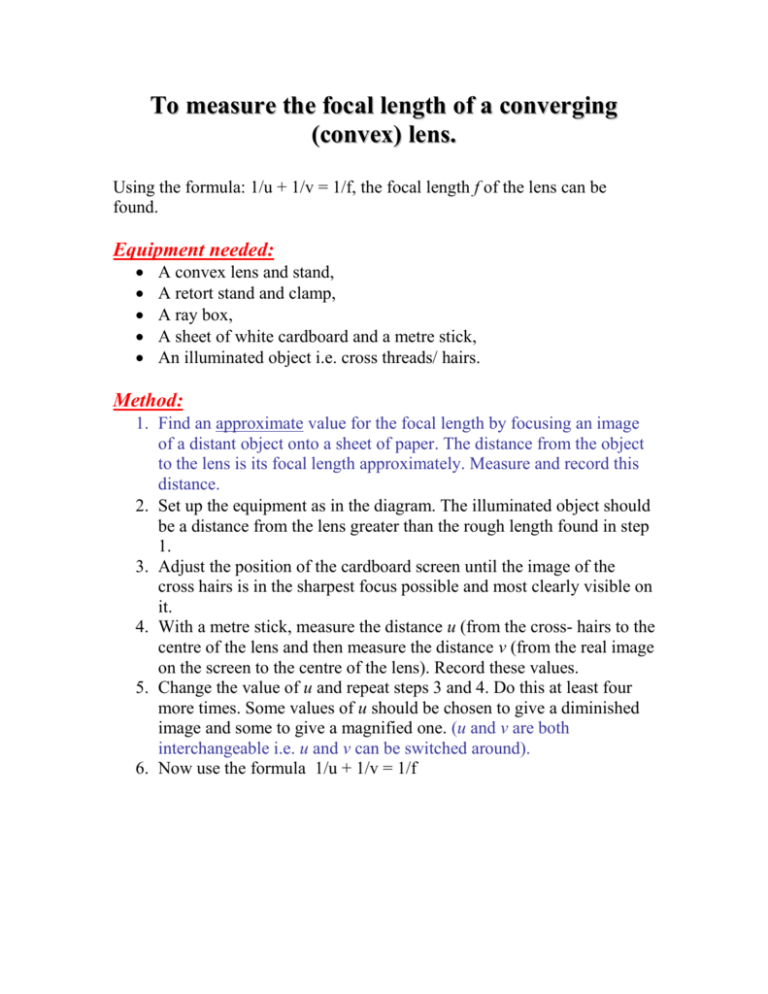
To measure the focal length of a converging (convex) lens. Using the formula: 1/u + 1/v = 1/f, the focal length f of the lens can be found. Equipment needed: A convex lens and stand, A retort stand and clamp, A ray box, A sheet of white cardboard and a metre stick, An illuminated object i.e. cross threads/ hairs. Method: 1. Find an approximate value for the focal length by focusing an image of a distant object onto a sheet of paper. The distance from the object to the lens is its focal length approximately. Measure and record this distance. 2. Set up the equipment as in the diagram. The illuminated object should be a distance from the lens greater than the rough length found in step 1. 3. Adjust the position of the cardboard screen until the image of the cross hairs is in the sharpest focus possible and most clearly visible on it. 4. With a metre stick, measure the distance u (from the cross- hairs to the centre of the lens and then measure the distance v (from the real image on the screen to the centre of the lens). Record these values. 5. Change the value of u and repeat steps 3 and 4. Do this at least four more times. Some values of u should be chosen to give a diminished image and some to give a magnified one. (u and v are both interchangeable i.e. u and v can be switched around). 6. Now use the formula 1/u + 1/v = 1/f Precautions: 1. 2. 3. 4. Repeat the experiment a number of times, Make sure the image is in clearest focus possible, Screen and lens are vertical Remember the u and v are interchangeable. Graphing: u/ cm v/ cm 1/u cm 1/v cm NB 1/u + 1/v = 1/f, 1/u + 1/v = 1/f, but 1/v = 0, but 1/u = 0, so 1/f = _____ therefore, f =_____ so 1/f = _____ therefore, f =_____. Question 1: An object is placed 40cm from a diverging lens of focal length 50cm. find the position and nature of the image. Answer: Here, u = 40cm, f= 50cm, and v is unknown. 1/u - 1/v = -1/f 1/40 - 1/v = -1/50 -1/v = -1/50 – 1/40 1/v = 1/50 + 1/40 1/v = 0.045 V = 1/0.045 = 22.2cm Question 2: A concave lens of focal length 10cm produces an image which is half the size of the object. How far away is the object from the lens? Find also the position and nature of the image. Answer: Magnification = ½ = v/u = ½ = v = u/2 1/u - 1/v = -1/f 1/u – 2/u = 1/10 1-2/u = -1/10 U = 10 The object is 10cm from the lens. V = u/2 = 10/2 = 5cm. Therefore the image is virtual and 5cm from the lens.

